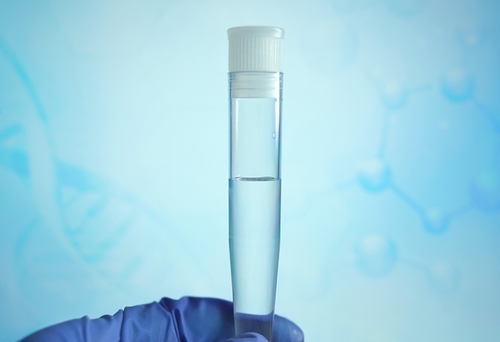Water Testing for Private Wells: Ensuring Safe and Clean Water Supply
Private wells are a popular source of drinking water for many households, especially in rural areas where access to municipal water systems may be limited. While private wells can provide a reliable and cost-effective water supply, they also come with the responsibility of ensuring that the water is safe and clean for consumption. One crucial aspect of maintaining a private well is regular water testing. By testing the water from your private well, you can ensure that it meets health and safety standards, identify potential contaminants, and take necessary steps to protect your family’s health. In this blog post, we will explore the importance of water testing for private wells and discuss the steps involved in ensuring a safe and clean water supply.
Understanding the Importance of Water Testing
Water testing is essential for private well owners to ensure that their water supply is free from harmful contaminants. Unlike municipal water systems, private wells do not undergo regular monitoring and treatment by water authorities. As a result, private well water may be more susceptible to contamination from various sources, including agricultural runoff, septic systems, and industrial activities. Contaminants such as bacteria, nitrates, pesticides, heavy metals, and volatile organic compounds can pose serious health risks if present in drinking water. Regular water testing is the only way to detect these contaminants and take appropriate measures to address any issues.
Identifying Potential Contaminants
Private well water can become contaminated by a variety of sources, both natural and man-made. Common contaminants found in private well water include bacteria, such as coliform and E. coli, which can cause gastrointestinal illnesses. Nitrates, often from agricultural fertilizers or septic systems, can pose a risk to infants and pregnant women. Pesticides and herbicides can leach into groundwater from agricultural activities, while heavy metals, such as lead and arsenic, can come from natural geological sources or industrial pollution. Water testing helps identify the presence of these contaminants and enables well owners to take appropriate actions to address any issues and protect their health.
Ensuring Regulatory Compliance
In addition to health concerns, private well owners may also be subject to regulatory requirements regarding water quality. Depending on the location and jurisdiction, there may be specific regulations or guidelines for private well water testing and treatment. Some states require periodic water testing for certain contaminants, such as bacteria, nitrates, or volatile organic compounds. Well owners are responsible for complying with these regulations and ensuring that their water supply meets the required standards. Regular water testing can help well owners stay in compliance with regulatory requirements and avoid potential fines or penalties for non-compliance.
Developing a Water Testing Plan
To ensure a safe and clean water supply from a private well, it is important to develop a water testing plan that includes regular testing for key contaminants. The frequency and types of water tests needed will depend on various factors, such as the well’s location, age, and history of contamination. A basic water testing plan may include tests for bacteria, nitrates, and pH levels, which are common contaminants in private well water. Additional tests for pesticides, heavy metals, and volatile organic compounds may be recommended based on specific concerns or risks in the area. It is essential to work with a certified laboratory for water testing and follow their guidelines for collecting and submitting water samples.
Taking Action Based on Test Results
Once water test results are available, well owners should carefully review the findings and take appropriate actions based on the results. If test results indicate the presence of contaminants above regulatory limits or health guidelines, prompt action is essential to address the issue and protect the health of household members. Depending on the type and level of contamination, treatment options may include disinfection, filtration, or other remediation measures. Well owners should work with qualified professionals, such as water treatment specialists or environmental health agencies, to develop an effective plan for addressing water quality issues and ensuring a safe and clean water supply from the private well.
Maintaining Water Quality Over Time
In addition to regular water testing, ongoing maintenance and monitoring of private wells are crucial for ensuring long-term water quality and safety. Well owners should follow best practices for well maintenance, such as inspecting the well structure, protecting the wellhead from contamination, and preventing surface water runoff from entering the well. Regularly monitoring water quality indicators, such as changes in taste, color, or odor, can also help detect potential issues early and prevent water quality problems. By establishing good water management practices and staying vigilant about water quality, well owners can ensure a reliable and safe water supply for their families.
Summary
Water testing is a critical aspect of maintaining a safe and clean water supply from private wells. By regularly testing well water for contaminants, well owners can ensure that their water meets health and safety standards, identify potential risks, and take appropriate actions to protect their families’ health. Developing a water testing plan, interpreting test results, and implementing necessary treatment measures are essential steps in safeguarding water quality from private wells. By staying informed, proactive, and vigilant about water quality, well owners can enjoy the benefits of a reliable and healthy water supply for years to come.
Got Questions? Let Us Help!
Welcome to Royal Water Works, Inc.! We are a family-owned business that has been serving the heart of Pisgah Forest, NC for over twenty years. As an environmental service company, Royal Water Works, Inc. partners with contract operations for water testing, water filtration design, wastewater operations, iron removal, PH adjusting, ultraviolet disinfection, and more. We provide a high degree of customer service and quality work to ensure we get the job done. Call us today; we can’t wait to hear from you!
Categorised in: Water Testing

